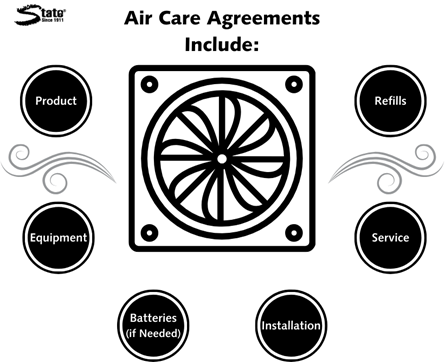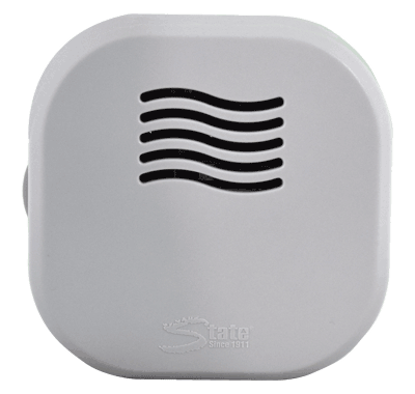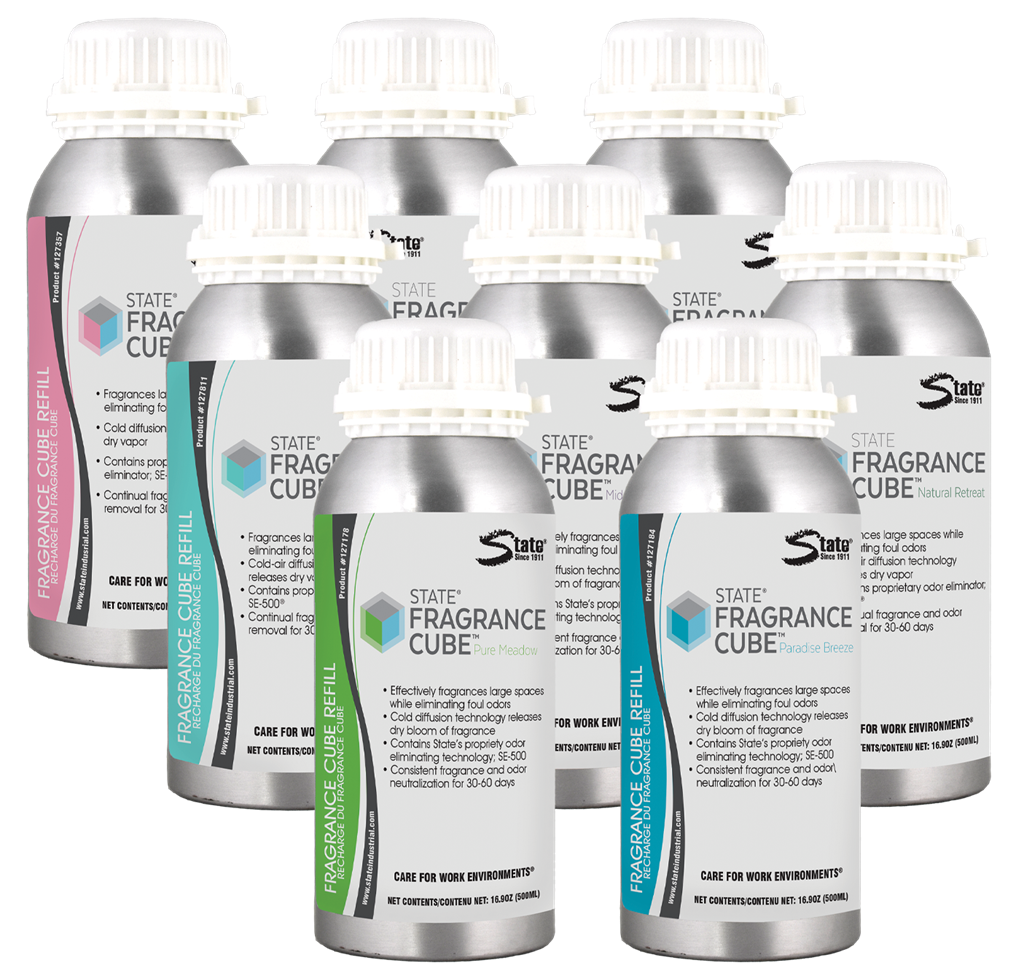What Does an Air Care Agreement with State Chemical Look Like?
What Does an Air Care Agreement with State Chemical Look Like?
Signing your name beside that infamous “X” can be stressful, especially for an air care program that will affect your whole facility. Before you make a binding agreement, you want to be sure that this is the decision for you. But how do you know whether a State Chemical air care agreement will actually suit your facility?
In business since 1911, State Chemical sells hundreds of chemical solutions, with one of our main focuses being air care. We’ve worked with enough customers to know that committing to a yearlong (or longer) agreement is difficult without fully understanding the details.
To help you understand what working with us is like, we’ve written this article to explain what an air care agreement is, what ours includes, how much you’re committing to, and how it can best fit your situation. After reading, you’ll know whether a State Chemical air care agreement is the right move for your facility.
What is an Air Care Agreement at State Chemical?
An air care agreement supplies your business with fragrance dispensing units, refills, installation, and service for a flat, monthly fee.
The specifics of what’s included in an agreement will vary by company, but at its core, an air care agreement ensures you will use a certain company’s fragrance system for a specified amount of time (usually a year). They, in turn, will be responsible for supplying you with what you need to keep your facility smelling fresh.
What is Included in a State Chemical Air Care Agreement?
When working with State Chemical, an agreement is for one year and includes the product, necessary equipment, batteries if needed, installation, service, and refills. The main aspect that sets us apart here is the continued service we offer.
With some air care agreements, you’ll either have the equipment shipped to you to begin with or the refills and other replacements will be shipped later on. With State Chemical, a representative will complete all of the orders and necessary maintenance for your system. As long as you have an air care agreement with us, the representative will do the work for you.
Typically, this will mean monthly maintenance. When our systems are set at the standard rate, they need refills every 30 days. When this happens, your facility’s representative will come in, replace the fragrances, ensure the equipment is working properly, and make adjustments if needed.
The timing may vary a bit throughout the year. For example, the summer heat tends to bring out more odors than the winter cold. Therefore, in summer, you might program your fragrance system to run slightly more frequently in order to combat malodors, so you might need refills every three weeks. Meanwhile, you might not need to run your fragrance system as frequently in the winter, so maybe you only need refills every two months.
What Will My Air Care Responsibilities Be?
With a State Chemical representative working for you, your facility’s only responsibility will be to pay each month. Otherwise, the representative will take care of the installation, refills, replacements, and other services for you.
Similarly, if you have any questions, concerns, or requests regarding your fragrance system, the representative can assist you and make any necessary adjustments.
What if I’m Not Sure I Can Commit to a Yearlong Air Care Agreement?
For some, the concerning part of an air care agreement isn’t the air care; it’s the fear of being locked into a contract and later needing out. So, what would happen in that case?
First, note that with a State Chemical air care contract, you can withdraw from the contract at any time within the first 30 days. This way, if you find that our air care program isn’t for you, you can get out before committing to a long-term contract.
However, if you miss this withdrawal deadline, you still have other options. Suppose you get six months into the contract when your facility is forced to make budget cuts, which means axing air care. If this happens to you, you can withdraw from the contract and simply pay 15% of what you were supposed to pay for the rest of the year. This way, we can cover the remaining costs of de-installation, but you aren’t forced to keep paying for a system you don’t want.
What Different Air Care Agreements are Available?
Depending on your facility’s needs, your agreement could look very different.
For example, a food processing plant fighting a facility-wide malodor problem will require a larger system and more frequent maintenance. Meanwhile, an office building looking to add a subtle fragrance to their lobby will need a smaller system and probably less frequent maintenance.
Agreements are also adaptable based on your needs. For example, if you’re looking for ways to lower the price, you can run the system only during business hours so that the building isn’t unnecessarily fragranced overnight.
Additionally, agreements have a flat rate payment for every bill, so you don’t need to budget for extra scent in the summer, for example—it's covered throughout the year. And agreements have flexible billing options (e.g., monthly, quarterly, or annually) so that you can pay in the most budget-friendly way for you.
Plus, being on an agreement usually means that you’ll be able to receive discounts for buying in bulk. Meanwhile, if you purchase smaller amounts of products as needed, you won’t be able to qualify for quantity-based discounts.
If this still doesn’t sound great for you, buying products as needed can still be an option for you in many cases. This way, you can manage your own air care needs and buy products when it’s most convenient and fitting for your facility.
Contact State Chemical
Signing a yearlong agreement doesn’t often bring with it a relieved feeling, but now you know how an air care program works for you and your needs. Your first step in getting set up with a State Chemical air care agreement is to contact us below for a site survey.











